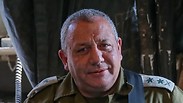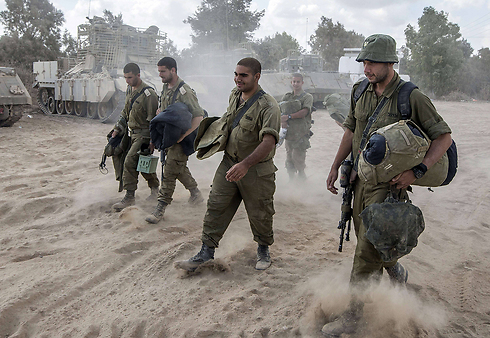

What if a war breaks out tomorrow morning?
Analysis: A clear answer on whether the IDF is properly prepared for war can likely be found in the Knesset subcommittee’s classified detailed report. The vague report issued to the public on Monday provides the following answer: It depends which war we find ourselves in.
But the public report is intended for the man on the street, who wants to get a simple answer to the following question: Is the IDF ready for war tomorrow morning? The clear answer can likely be found in the classified and detailed report, while parts made available to the public are vague and sophisticated. After reading it, the answer is: It depends which war we find ourselves in.
The report indicates that the five-year Gideon Plan, which is supposed to prepare the army for the next war, is first of all an admission by the IDF that until Operation Protective Edge the army had been building itself for the wrong war, and that it must prepare differently. Throughout the public report, therefore, the chief of staff is praised for admitting that there is a need for a change and for a strategy for the army, as well as for a plan matching the threats that the army predicts it will have to face.

The decisions made by the chief of staff so far, according to the report, are essentially right. It turns out, however, that the army is playing chess with itself. It’s determining the security needs, the threats and how to prepare for them. The political echelon isn’t involved. At best, it is a rubber stamp. But when a crucial day arrives, like in all the recent conflicts, the political echelon makes different strategic decisions to the ones the IDF has been building itself for.
In the Second Lebanon War, for example, the IDF wasn’t well prepared for the prolonged conflict imposed by the political echelon. The army didn’t build itself properly for the Protective Edge threat either, and definitely not for the timetable imposed on it. Can anyone promise that what Chief of staff Gadi Eisenkot is doing today will match the political echelon’s needs and demands in the next conflict?
The army began working on the Gideon plan before the great turmoil was unleashed in the region during the past decades: The Russians entered Syria with a military force and are planning to stay there for a long time. As a result, Syrian President Bashar Assad is winning the war and the Iranians are settling down in Syria. When Gideon was launched and the IDF talked about building maneuvering strike forces, it had the Lebanese arena in mind. The plan was built according to a scenario of one main arena and a marginal Palestinian arena.
Today, another significant front could be created in Syria, possibly forcing the IDF to act in full force in several arenas simultaneously. Does Gideon match this scenario? The report raises this question, and the answer can likely be found in its confidential part. Has the IDF reached a critical mass with primary weapons for a defeat? Probably not, the available part of the report implies.
There may be a situation in which the cabinet convenes and decides to adopt a certain strategy. For example, the main threat is Tehran and the nuclear program. It can then take the Gideon plan, use selected parts of it, and make a kite out of the rest.
The committee states that at the moment the cabinet isn’t guided by the IDF, but the other way around. The reference scenario and the response are dictated by the army. The committee is also critical of the IDF’s reference scenario, which it sees as unrealistic: “The operative plans must be adjusted to the real situation and to a realistic examination of the abilities.”
The committee members aren’t certain, despite the excellent Gideon Plan, that the IDF is prepared for a wide-scale war. The public report includes a sentence which conceals many pages behind it in the confidential report: “The arming and force building pace is derived from the options and doesn’t always solve the gaps in different areas that the committee discovered in its work… There are a number of critical fields which require adjustments in the force building pace, even at the expense of other abilities…” This sentence points to a difficulty which makes it impossible to say for certain that the IDF is properly prepared for war tomorrow morning.
















